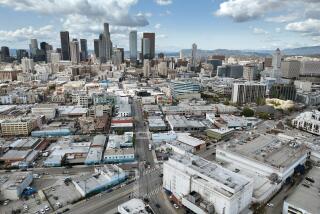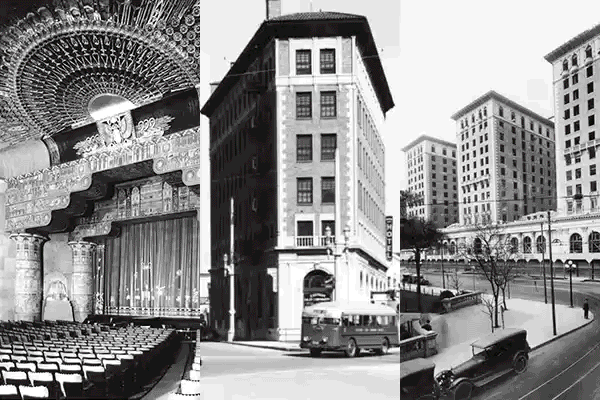How much has once-dreary Hollywood changed? Try $6,600 a month for a 2-bedroom apartment
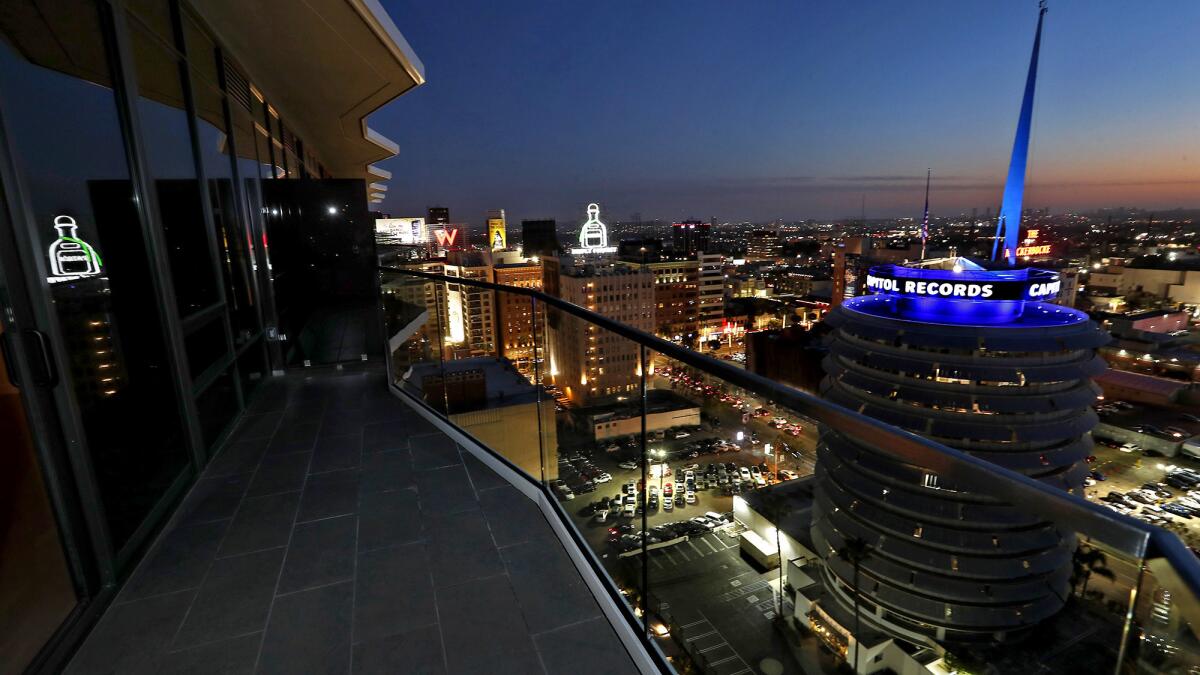
Monthly rents for a deluxe apartment tower called Argyle House opening next month start at $3,395 for a studio, $4,395 for a one-bedroom and $6,595 for two bedrooms.
The location? Not Beverly Hills, not Santa Monica, but the once-dreary intersection of Argyle Avenue and Yucca Street in Hollywood.
The lofty rents of the 18-story tower that will open next to the landmark Capitol Records Building are a telling sign of just how much the neighborhood has changed from its downtrodden days of a few decades ago.
Entertainment companies that once abandoned the neighborhood are returning in force, and bringing with them a yen for posh housing, developers hope.
Among the latest to set up shop there are streaming powerhouse Netflix and major Viacom Inc. brands including MTV, Comedy Central, BET, VH1, Spike and TV Land.
Such employers drive new demand for housing, according to local business leaders who expect the population of Hollywood to more than double between 2010 and 2020.
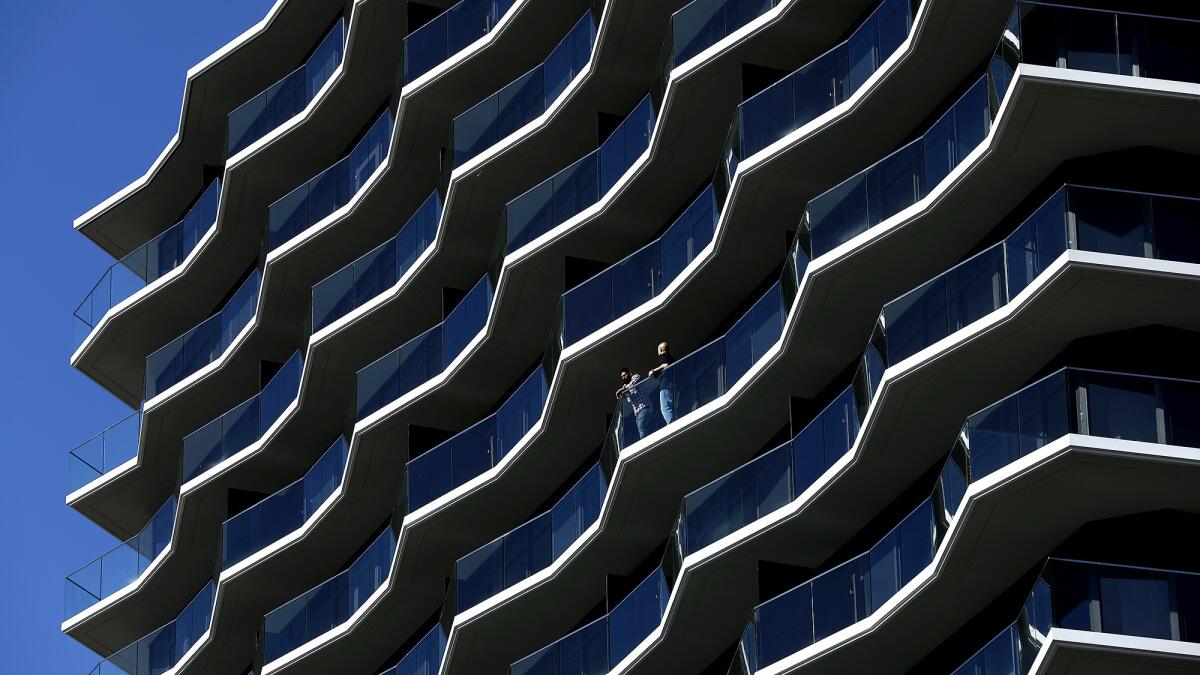
“It’s all about the job growth,” said developer Gino Canori of Related Cos., which built the posh Argyle House apartments with show-biz people in mind. “We’re getting higher-paid workers with these new businesses.”
Other new workplaces for the creative class in Hollywood include exclusive shared-office space providers NeueHouse in the historic former CBS Radio Building on Sunset Boulevard and h.Club LA, which is set to open this year in a former hotel at the famed intersection of Hollywood Boulevard and Vine Street.
Related Cos. spent $90 million to build Argyle House, and it features a host of services for well-paid but career-harried tenants.
The rent includes package shipping and weekly hotel-style tidying up by a housekeeper. Also covered through a phone app is a weekly order of groceries that will be delivered to tenants’ refrigerators and pantries or laundry delivered from the cleaners to their closets.
Other services such as hanging flat-screen televisions, assembling furniture and walking the dog can be ordered at additional costs through the app.
“Everyone is used to swiping left and swiping right and getting what they want,” Canori said of the phone app. “This way your Saturdays are freed up to do things that are more interesting than errands.”
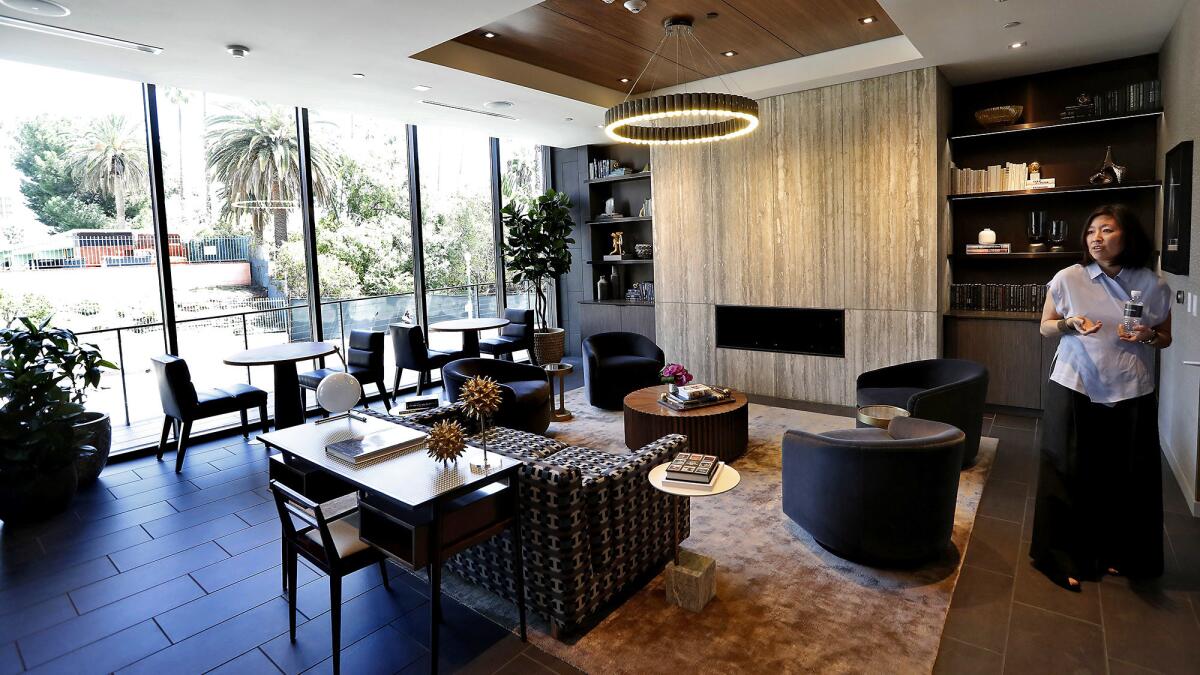
The types of tenants he envisions renting the Argyle’s 114 apartments include “power agents, tech entrepreneurs and studio executives,” said Canori, chief development officer of company division Related California.
Other fancy touches include a library and a fifth-floor terrace in view of the Hollywood sign with a swimming pool, barbecues, outdoor dining area and dog run. Every unit has floor-to-ceiling windows and glass outdoor balconies.
“We’re going for an indoor-outdoor midcentury vibe,” said Phoebe Yee, an architect for the company.
The building was designed by Los Angeles firm Large Architecture in a nod to midcentury style meant to complement the Capitol Records Building erected next door in the 1950s. The circular office building still occupied by Capitol resembles a stack of records on a turntable with the spindle pointing toward the sky.
Related tried to create a significant-looking building that doesn’t compete visually with the Capitol tower, a city historic and cultural monument, Yee said.
“We’re trying to hold our own but be respectful,” she said.
The creation of expensive housing such as the Argyle House and nearby Instrata Sunset Vine Tower Residences, where rents rival mortgage payments, underscores Hollywood’s comeback, commercial real estate broker Chris Bonbright of Avison Young said.
“High-quality, high-end residential projects are the next manifestation of Hollywood emerging as one of the most important districts in Los Angeles,” Bonbright said.
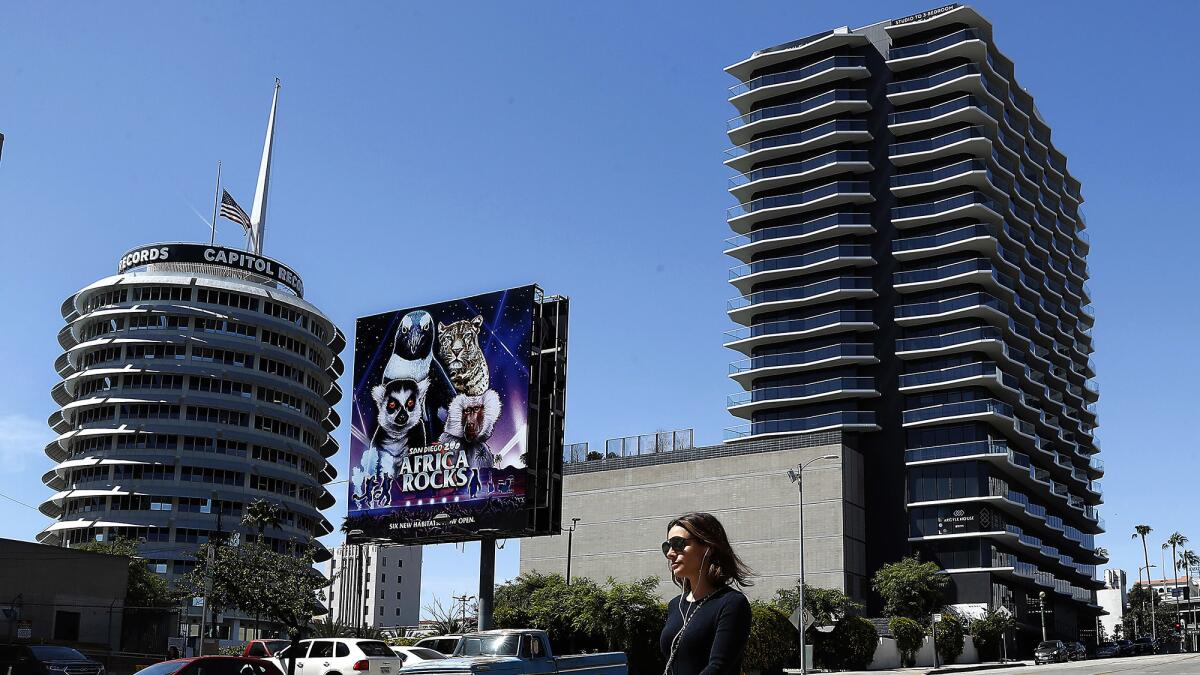
Hollywood is one of the few neighborhoods in Southern California with a good-sized core of blocks available for a mix of urban uses, including offices, shops, restaurants, hotels and residences, he said.
“In a few years it will feel more like a true downtown urban community,” Bonbright said, “like Vancouver, Manhattan, Chicago or San Francisco.”
Hollywood’s growing density is not welcome, however, to some longtime residents who fear that the district that was created as a small town well over a century ago cannot support the congestion and strain on services that would come with being a regional center.
“I am unhappy that Hollywood is being developed to the degree that it is,” community activist George Abrahams said.
Abrahams and Hollywood homeowner groups a few years ago settled a lawsuit with Related aimed at stopping the construction of Argyle House, he said. The opponents objected to potential traffic increases and possible seismic safety issues.
After soil tests, the city Department of Building and Safety concurred with Related Cos. and nearby developer Millennium Partners that there were no active faults near the Capitol Records tower. State geologists disagree with that finding, but city officials are the final arbiters of whether development is seismically safe.
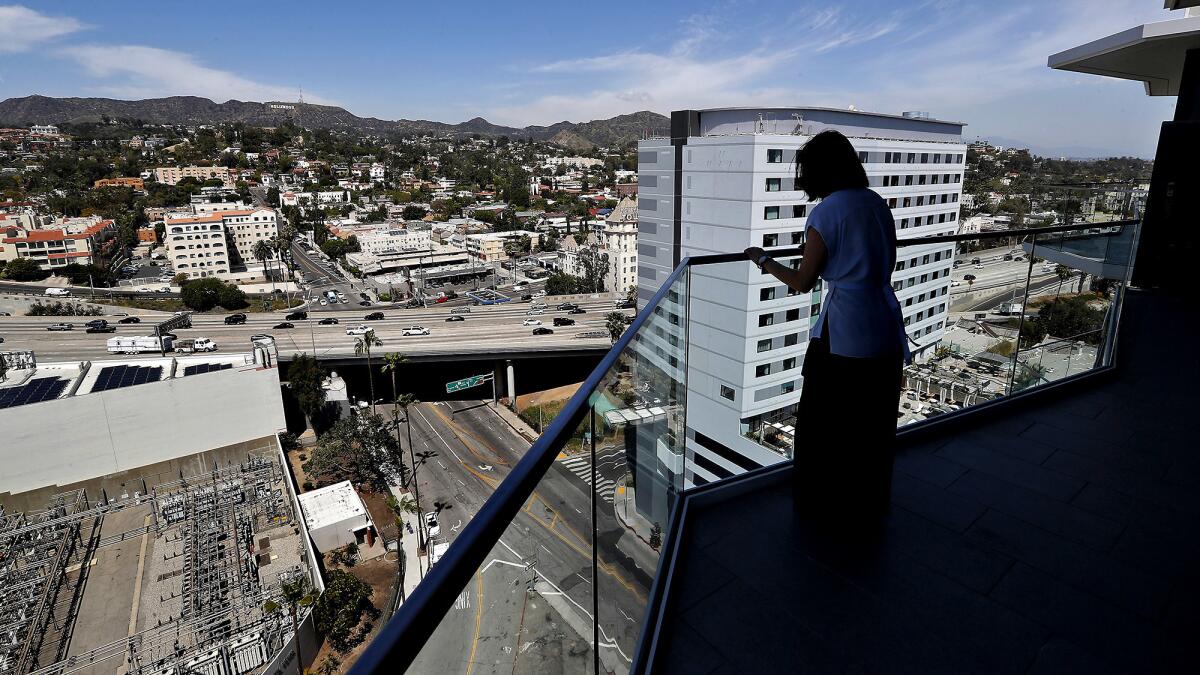
Last week, Millennium Partners filed plans with the city to build a $1-billion residential and retail complex on parking lots by Capitol Records and the Argyle House.
Related Cos. has built other substantial projects in the region, including the Century condominium tower in Century City, the Seychelle condominium complex in Santa Monica and the 19-story Emerson apartment tower in downtown Los Angeles.
Related is set to begin construction in late fall on the Grand, Canori said. The Grand will be a $1-billion open-air complex of apartments, condominiums, movie theaters, restaurants and shops designed by architect Frank Gehry across Grand Avenue from the Walt Disney Concert Hall in downtown L.A.
Twitter: @rogervincent
More to Read
Inside the business of entertainment
The Wide Shot brings you news, analysis and insights on everything from streaming wars to production — and what it all means for the future.
You may occasionally receive promotional content from the Los Angeles Times.

